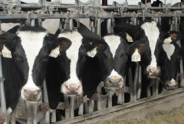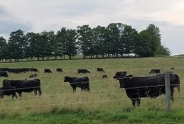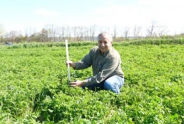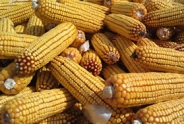Field Crop Update July 25, 2025
Erik Smith, Area Field Crop Specialist/Team Leader
Central New York Dairy and Field Crops
1. Announcements
First off, thank you to everyone who made it to our Corn and Soybean Seed IPM Field Day at Cobleskill! We had more than 50 people at the event, and we're looking forward to another field day next year to share what we learned in year one of this huge study.

2. Field Observations and Pests
We are beginning to see western bean cutworm in our traps, but still low numbers. Keep an eye on your upper leaves for egg masses.
The biggest news this week is that true armyworm has hammered a handful of corn fields across the state. But only crops planted during a brief window of time in any given location. True armyworm migrates into NY each year, so while we monitor our pheromone traps as a warning system, outbreaks can be random. In fact our trap captures are below 5/trap all year long, and we've seen at least two fields destroyed in the CNY region, with fields in the North Country and WNY being hit as well. If your corn crop has been hit hard by armyworm, it's only economical to spray them if the larvae are less than ??¾". Any longer than that, and they are too close to pupation for the spray to have any effect. And since they do not survive the winter in NY, killing them now will not prevent an infestation next year. If your corn was destined for silage, you may still have time to get a cutting of sorghum-sudan if you plant now. If you were hoping for grain, the best you can do is wait to see if it grows out of the damage (kernel number is determined from ~V6 to silking). If it doesn't, planting a winter forage/grain in Aug-Sept may be a good option to mitigate income loss from those acres. These pictures were taken from Schoharie County, and as you can see, the larvae are well beyond the stage where sprays are effective. This grower is opting to see if we get enough rain to salvage a grain crop before deciding whether to plant a winter grain.
I'd like to invite the 2025 growing season to ease up and give us a break… any time…..
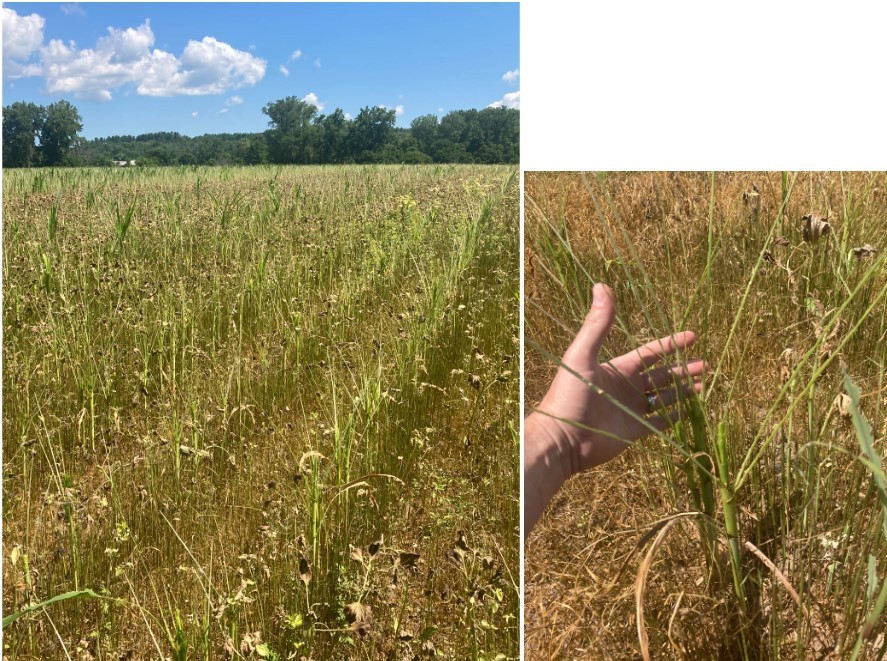
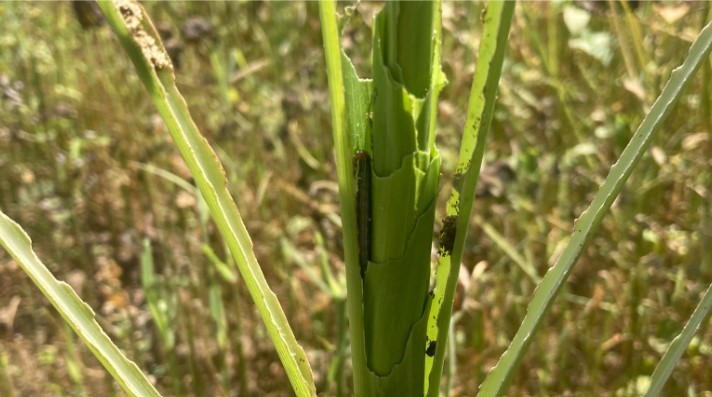
See you in the field!
Upcoming Events
Swine Production Zoom Series
February 5, 2026
February 19, 2026
March 5, 2026
March 19, 2026
April 2, 2026
Register for the whole series or for one or several sessions.
Announcements
Statewide Field Crop Pathology Needs Assessment Survey
Your input is wanted for identifying priorities!Sign Up for Our Weekly E-Newsletter
We send out a bi-weekly e-newsletter that has announcements, upcoming programs, and opportunities for you! Registration is quick, easy, and free. Click here to sign up today!Farmers Can Join MeatSuite For Free!
MeatSuite.com is a free resource provided by Cornell University where NY meat farmers can create a farm profile and list their bulk (wholes, halves, quarters) and bundled (i.e. Grilling Bundle) meat products.Why should farmers join?
1. It's free and easy!
2. Connect with more local customers. In the past year the MeatSuite.com farm directory had 8,300 visits from New York consumers. Farm profiles get as many as 25 views per month from potential local customers. We also spotlight MeatSuite farms on social media and bring attention and purchases to farms through highlights and giveaways.
How do I join?
Farmers can visit https://www.meatsuite.com/farmers/ to create a free farm profile. You must list at least one product for your farm's profile to go live. You'll also have access to Cornell's free Meat Price Calculator, a helpful tool for pricing your meat to make a profit.
While you're on MeatSuite, check out the "Creating Consumer-Friendly Bulk Meats" publication on the log-in page. It has tips on how to create bulk meat products that are easier for first-time buyers to say "yes" to.
If you have any questions as you create your farm profile or products, we're here to help! Please email Matt LeRoux at mnl28@cornell.edu.

